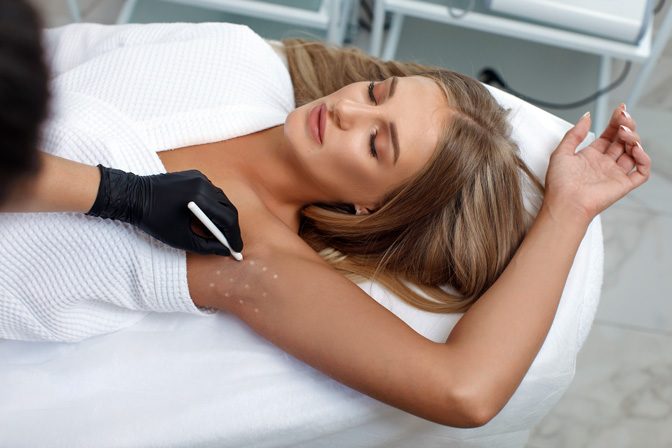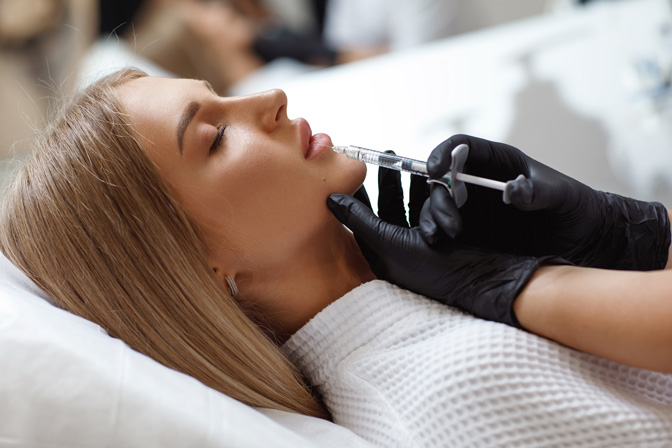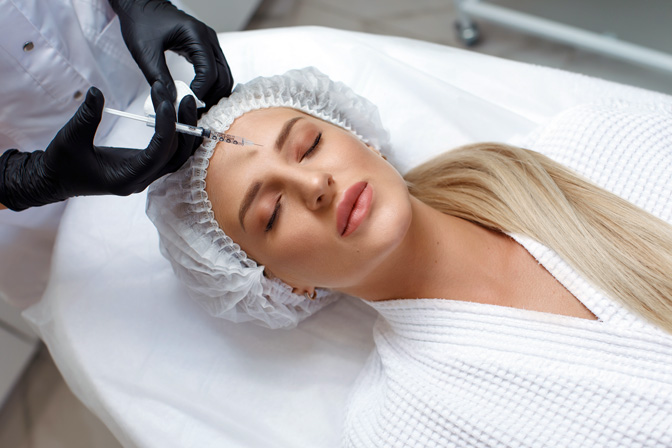Proposed New Licensing for Aesthetics Treatments
“In a quandary about proposed licensing and offering injectable treatments for your clients ?”
Unsure whether to train now ?
Concerned that if and when the proposed licensing scheme comes in to effect, you will no longer be able to practice ?
Well, in order to assist you to make an informed decision, you’ll need information that is accurate and true. The following information has therefore been put together to answer the many questions we are often asked by email, over the phone and when people are training with us.
Background and Context to the Proposed Licensing
When Cosmetic injectable treatments first became available to the public over 20 years ago, there was no government legislation relating to who could administer aesthetic treatments, the training and qualifications required, or the products used.
The resultant lack of standardisation and legislation has led to widely different levels in standards of services being offered.
The aesthetics industry is currently estimated to be worth in excess of £3 billion and is predicted to grow 10% annually. The government recognise that any licensing scheme for non-surgical cosmetic procedures must strike a balance between protecting the public and building confidence in the safety of the aesthetic industry, while respecting consumer choice and encouraging innovation.
Equally, the government won’t want to stifle the growth of this sector.
Proposed Licensing scheme
In April 2022, the Health and Care Act was amended to give the Secretary of State for Health and Social Care, the power to introduce a licensing scheme to regulate non-surgical cosmetic procedures in England.
The aim of the licensing scheme is to ensure that aesthetic practitioners, regardless of whether they are healthcare professionals or not, have to adhere to the same consistent standards and protect individuals from the potentially harmful physical, emotional and psychological impacts of poorly performed non-surgical cosmetic procedures.
What does the proposed licensing scheme aim to achieve?
The government proposes that the licensing scheme will:
- Identify the procedures that present a risk to the public.
- Consist of 2 interlinked components: a practitioner licence and a premises licence.
- Be administered and enforced by local authorities, who will work with a range of partners such as environmental health officers, trading standards officers and the Health and Safety Executive.
- Make it an offence for an individual to carry out non-surgical cosmetic procedures without a licence.
- Require those people who offer procedures to:
- Be suitably trained and qualified.
- Hold appropriate indemnity cover.
- Operate from premises which meet the scheme’s standards of hygiene, infection control and cleanliness.
In effect, similar to how licensing currently operates for Electrolysis !
What has happened up until now ?
There has been an initial consultation that ran for 8 weeks and ended on 11:59 pm on the 28th October 2023. In this consultation, the government were seeking the views of practitioners, the public and anyone who has any interest / involvement in the aesthetics sector.
Following the initial consultation, there now follows a period of analysis and consideration of the information provided.
From the date the consultation closes and throughout 2024 and 2025, the government state that they will work with expert groups on the elements that will underpin the licensing scheme, including education and training standards, infection control and cleanliness, indemnity requirements and licensing fees to be paid.
They will then need to draft and document the full licensing proposals to be presented in Parliament, to then be agreed and made law.
NB. Bear in mind this is just the initial stages of bringing a the licensing scheme in to effect. It will then take a further considerable period of time, once it has been fully agreed and finalised, to roll it out and bring it in to effect.
How long will it be until the licensing scheme is likely to be introduced?
Given that it’s taken 16 months, from the Health and Care Act giving the Secretary of State for Health and Social Care the power to introduce a licensing regime for non-surgical cosmetic procedures in England, to having this first open consultation, it’s highly likely that we can expect the implementation of the full licensing scheme to take a number of years before anything comes in to being.
Does the proposed license scheme mean that non-healthcare practitioners won’t be able to administer Botox & Fillers?
No, it does not. Aesthetic practitioners who aren’t regulated healthcare practitioners will still be able to administer treatments but it is proposed that they must be licensed and have relevant oversight by a named regulated healthcare professional, much in the same way that those currently administering botulinum toxin work with the oversight of a qualified Prescriber.
The key adjective here being Relevant oversight. Common sense thus prevails, as the oversight would be appropriate to the treatment and circumstances and not a mandatory impostion, which could in effect create a completely ineffective and unnecessary scenario.
The full specification for training, qualifications and what “relevant oversight” entails, is still to be determined.
What was NOT included in the initial consultation?
During the initial consultation, no feedback was requested on:
- Restriction of non-surgical aesthetic treatments to healthcare professionals only – this element is not up for discussion. The government are looking for a way to make the practice of non-healthcare practitioners safer.
- What “relevant oversight” entails.
- Minimum training and qualification requirements.
- Cleanliness, hygiene and infection control standards.
- Indemnity requirements.
Will I need to complete further training and gain a Level 7 in Aesthetic Practice to continue to practice ?
The required training or qualifications hasn’t yet been determined. There is no explicit mention of needing to prescribe or have a Level 7 qualification in this report. But this initial consultation is not relating to these aspects of the licensing scheme. The next consultation should provide more information, clarity, and the opportunity to provide feedback on training and qualification standards.
In Summary …
It is always your decision as to what you ultimately decide to do, but consider this …
As is customary with new Government legislation, the implementation process is inherently gradual. Considering the available information and proposed timescales, it becomes evident that considerable time will be required before the any new licensing scheme comes into full effect.
It is extremely unlikely the Government will have the ability to close down any clinics and take away livelihoods overnight, especially when they have already been offering injectable treatments for many years. When any new legislation comes in to effect, it is always common practice to allow a period of grace, appropriately, in order to meet new requirements. No doubt, this would apply here.
So, it boils down to this.
You have 2 simple options as to what to do:
- You can wait for however long it takes, to see what happens if and when this proposed licensing scheme comes in to being whilst your competitors forge ahead.
- You get on with growing your business in the meantime, increase profits, keep up with your competitors and obtain the skills to offer clients the services that are in ever growing demand.
You can keep up to date on progress by reading the whole report by clicking on the following link:
GOVERNMENT AESTHETICS LICENSING CONSULTATIONS



